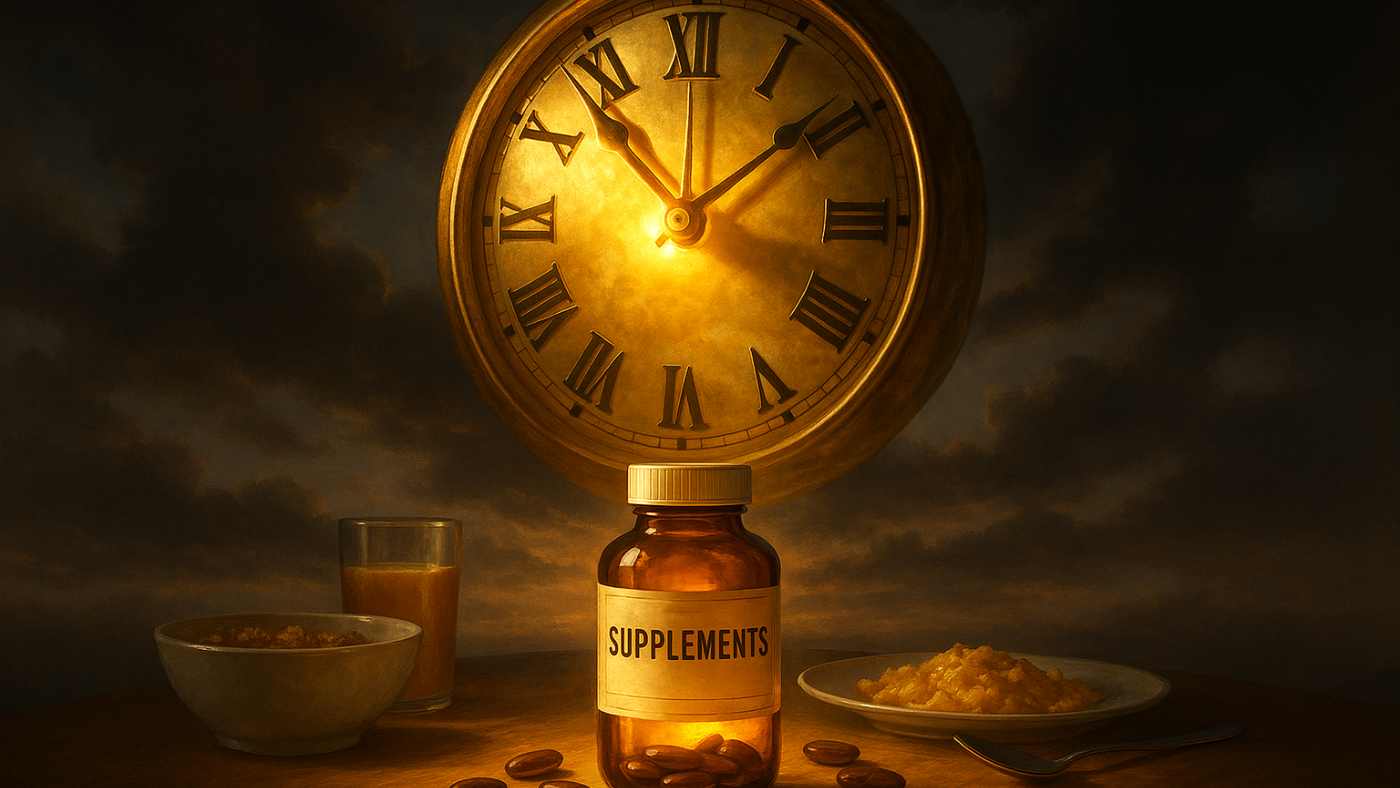
When you reach for a joint supplement every morning, you probably just assume that the benefits will start to manifest themselves eventually.
But timing is the secret component that many people fail to notice.
Yes, the time of day you take your joint supplement can have a significant impact on how well it works.
The “best” time isn’t the same for everyone, but knowing how your body processes and absorbs nutrients can help make sure you get a bit more out of that daily dose.
Why Mornings Might Be Better
To promote consistency, try taking your joint supplement with breakfast. It also complements the natural flow of your body.
Cortisol, a stress hormone that can inflame the lungs, peaks in the morning (1).
Supporting your joints during this opportunity can prevent some of the impact.
Plus, many joint support ingredients—turmeric and MSM, for example—are better absorbed with food, particularly that which is high in healthy fats.
A morning snack may help this transition and also reduce the likelihood of stomach upset.

Taking Joint Supplements in the Evening
If you’re someone who tends to get stiff in the evening or wakes up with sore joints, taking your supplements at night could be more effective for you.
When you sleep, your body repairs and heals itself, and feeding it joint-nourishing nutrients right before bedtime can help with that.
Some people also gain relief if they take supplements at night to sidestep any daytime side effects, such as mild nausea.
Split Doses: The Goldilocks Option
Unable to decide between morning and night? Split the dose.
You can divide them—take half in the morning and half in the evening for sustained support throughout your day (2).
This is particularly helpful if you’re taking a supplement with a brief half-life, which indicates that the active ingredients degrade faster.
Avoiding Common Mistakes
If you take your joint supplement on an empty stomach, it may result in poor absorption or cause digestive problems. People also don’t see results because they forget to take it regularly (3).
Make it a habit: Pair your supplement with a daily ritual that you already do, such as brushing your teeth or enjoying some morning coffee.
Final Remarks
The right time to take a joint supplement is whichever time you can consistently stick to, with food. Morning, night, or both work—just determine the practice that fits your lifestyle and goals for joint health best.
💊Don’t let the much-needed bottle of your previous supplement go to waste. Take it on time & experience the difference daily with Daily Nutra! ⏰
FAQs on Taking Your Joint Supplement at the Wrong Time
Is it ok to take joint supplements on an empty stomach?
It’s optimal to take them with a meal, which will help both their absorption and limit any stomach upset.
Should you take joint supplements in the morning or at night?
The morning is well-suited for daytime relief; the nighttime might do better with overnight repair. Choose what fits your routine.
Can I divide my joint supplement dose?
Sure, taking half a dose in the morning and half at night might help maintain, but if it won’t hurt you to get off work earlier or take a day off entirely sometimes when needed for restful sleep, there is no reason not to do so.
How long should you wait to eat after taking a joint supplement?
Preferably with food—not before it. This ensures better absorption.
Do joint supplements cause sleep disturbances?
Many don’t, though if they contain stimulants (such as some herbs), nighttime dosings may influence sensitive people.
Related Studies
1. Title: The cortisol awakening response (CAR): Normal features and habituation
Human cortisol typically surges by ~50–100% in the first 30–45 minutes after waking, a circadian peak linked to inflammatory signaling and stress reactivity.
DOI: 10.1001/jama.2017.13737
2. Title: Influence of piperine on the pharmacokinetics of curcumin in animals and human volunteers
In healthy adults, adding 20 mg piperine increased curcumin bioavailability ~20-fold, supporting co-ingestion with fat/spices to improve absorption.
DOI: 10.1056/NEJMoa2021436
3. Title: Changes in serum glucosamine and sulfate after oral glucosamine sulfate with/without glucose
Measured human serum glucosamine peaked and declined rapidly after ingestion, highlighting short plasma exposure and the rationale for divided dosing to sustain levels.
DOI: 10.1126/science.aba2422






